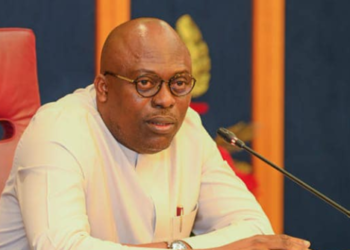The late former Zimbabwe President Robert Mugabe was as controversial in death as he was in life. At his best he ranked alongside Nelson Mandela as a revolutionary and liberator. At his worst he ranked alongside Mobutu Sese Seko as an autocrat who butchered opponents, rigged elections, and lived the good life while his people suffered excruciating poverty. Mugabe’s popularity peaked when he genuinely won the nation’s first free elections in 1980, after which it continued to fall as he labored through a remarkable 36 years in office.
The violence and chaos resulting from his struggles to hold in to power led to thousands of deaths, causing his legacy to be stained by murderous acts against opponents and critics. Zimbabwe has been badly scarred by his decades in power. Those who surrounded Mugabe towards the end of his life say he died a “sad man”. ADVERTISEMENT He could neither move with the times nor accept his loss of popularity. Blaming everyone except himself for Zimbabwe’s virtual collapse under his iron-fisted “democratic” rule, he used to joke that he would rule until he was 100-years old! The tragedy for Zimbabwe is that he almost did! Despite occupying office for almost forty years and openly displaying symptoms of dementia he wasn’t ready to give way. Perhaps if he hadn’t been removed by a military coup in 2017 he would probably have remained in office until his death. Mugabe’s later years is another case study of aged African leaders who ought to be enjoying their retirement years, but prefer instead to remain in power and struggle unsuccessfully to find solutions to the problems of youthful populations. Paradoxically in spite of his failures Mugabe had not lost all support.
Aged and failed African leaders continue to attract followership irrespective of their shortcomings because they are seen in some quarters are “elder Statesmen” who deserve respect on account of their role in either a successful independence/ liberation struggle or a Civil War. SUN 00:00 Previous PlayNext 00:21 / 03:00 Unmute Fullscreen Copy video url Play / Pause Mute / Unmute Report a problem Language Mox Player Experts in policy making and economics have concluded that aside from corruption the reason why African countries continue to perform poorly is because they are handicapped because the quality of leadership is affected by the advanced age of their leaders. Although these experts agree that there is no evidence to support the proposition that advanced age and longevity in power are the main causes of poor performance, they also agree that there is sufficient evidence to conclude that youthfulness and a periodic rotation of power positively impacts on development. Reflecting upon Mugabe’s fall from grace to grass raises questions as to why African leaders are so bent on holding on to office?, and how do they become so egocentric as to believe that only they are capable of leading their country?. The main problem with having the same person in charge for a long period of time is that it reduces the likelihood of innovative policies.

This is a natural consequence of aged leaders sticking to their outdated guiding principles and philosophical approaches to issues. Marked changes in human socio-economic behavior are estimated to follow ten year cycles, therefore periodic changes in leadership are necessary to create room for new ideas and new solutions to old problems. Regrettably other African leaders are following in Mugabe’s footsteps. Currently three African Heads of State (in Equatorial Guinea, Cameroon and Uganda) have been in power for more than three decades and at least eight others have been in office for two decades or more! The average age of the ten oldest African leaders is 81-years, while there are numerous others who are over 70-years old. Ironically most African countries have been independent for only between 40 to 60 years, and their leaders are older than the country itself! According to United Nations statistics the countries with the world’s ten youngest populations are all in Africa, and the average age of the population in the African Continent is just over 19-years old. This means in effect that in some African nations their leader is four times older than the average age! In the world’s ten most developed countries the average age of their leaders is 52-years old which is close to the average age of their populations. The reason why failed African leaders overstay their welcome and remain in power for so long is because of they have no qualms in using violence to quash dissent.
Mugabe was no different and Human Rights abuses under his regime included secret or arbitrary arrest and detention, restrictions on freedom of expression, police brutality, and in some cases assassination of opposition leaders. Although most African Constitutions specify the maximum amount of time individuals can spend holding political office, Mugabe referred to such term limits as an attempt by Western nations to “place a yoke around the necks of African leaders”! He was not alone. At least seventeen African Heads of State have increased their tenure through “constitutional coups” in which they proposed amendments to the Constitution which were approved by compliant Legislatures and Judiciaries. Mugabe’s fall from grace and overstay in power points to the fact that in Africa the saying “the youths are the leaders of tomorrow” is being taken too literally. The result of aged leadership in Africa is that leaders and their Cabinets who are out of touch with modern ideas still believe in older generation solutions to new generation issues. Good leadership requires a blend of experience and youthfulness, and ability to change with the times and think outside the box. It requires. Rather than overstaying their usefulness and being overtaken by events like Mugabe, aged African leaders who are products of events in the 1960’s should realize that its high time young Africans who are the real victims of the many problems facing the continent are allowed to be in charge of their own destiny.








